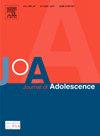Identity Processing Strategies, Classroom Ethnic Diversity, and Attitudes Toward Ethnic Outgroups
Abstract
Introduction
According to the Intergroup Contact Theory, social interaction can foster positive attitudes toward outgroups. However, less is known about the role of social-cognitive strategies in navigating experiences that prompt identity reflection, such as interactions in ethnically diverse classroom environments. In this study, we examine the role of identity processing strategies (i.e., informational, normative, diffuse/avoidant) in the relationship between classroom ethnic diversity and attitudes toward ethnic outgroups.
Methods
Using nationally representative data from the first wave of the Czech Education Panel Survey (2023), which included 23,466 high school freshmen (49.3% males, 49.9% females, and 0.8% others; 37.5% have at least one university educated parent; mean age of 15.6 years, Czech majority 84.4% and ethnic minority 15.6%) from 249 schools, multilevel models were employed to examine the attitudes of the Czech majority toward minority groups, as well as the attitudes of ethnic minority members toward the Czech majority.
Results
The findings show that there is a relationship between identity formation strategies and attitudes toward ethnic outgroups. Adolescents using informational and normative identity strategies are more positive toward outgroups. Diffuse/avoidant strategy is not associated with attitudes toward outgroups. Further, higher ethnic diversity in the classroom is associated with more positive attitudes toward outgroups among adolescents who use informational and normative identity strategies.
Conclusions
This study indicates that higher ethnic diversity in the classroom may facilitate the formation of positive attitudes toward other ethnic groups among adolescents. Thus, ethnicity should not be neglected when considering the composition of students in the classrooms.

 求助内容:
求助内容: 应助结果提醒方式:
应助结果提醒方式:


